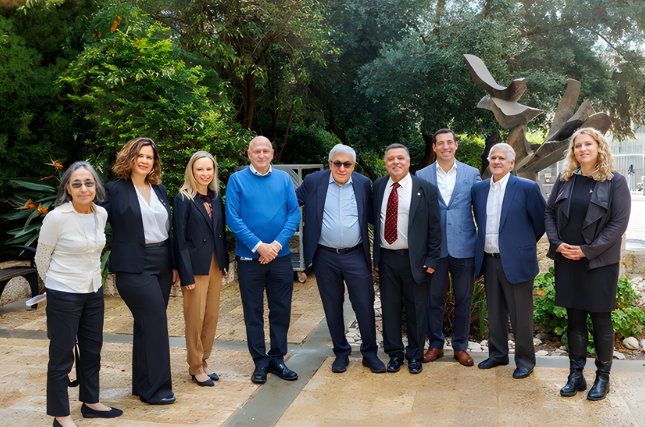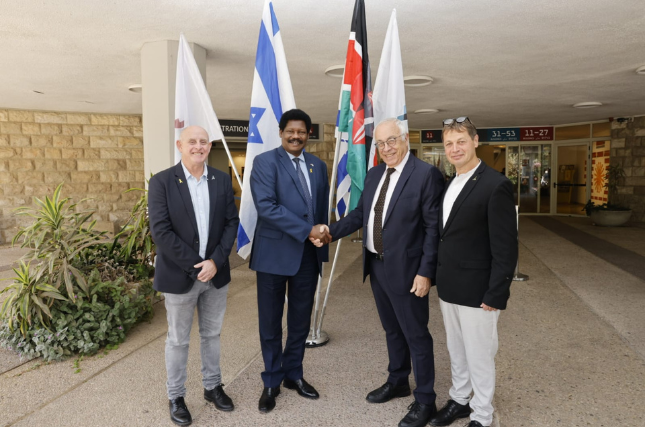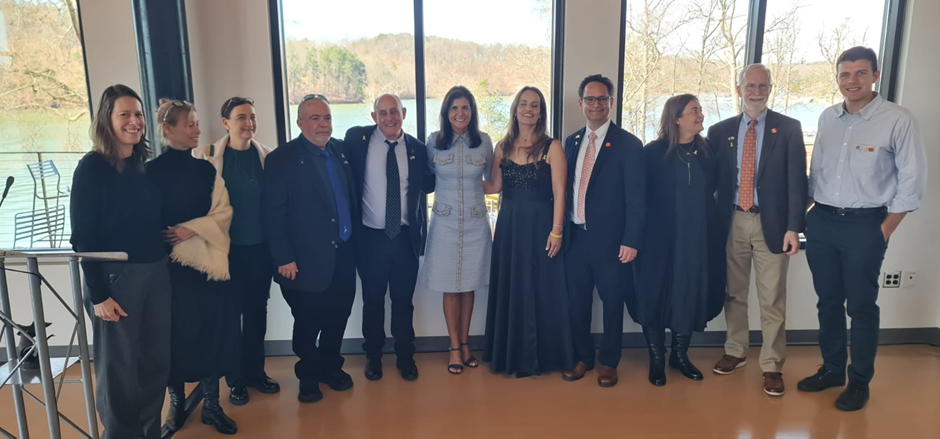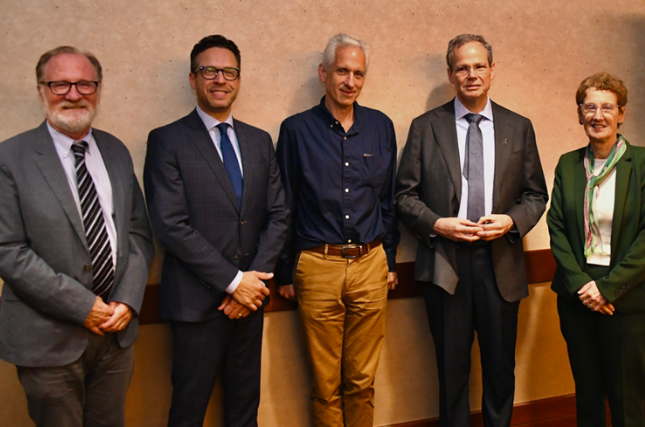
June 30, 2025 – Despite these challenging times, two universities remain steadfast in the commitment to curing one of the world’s most deadly diseases.
Recognizing the power of education and research in preventing, treating, and advancing life-saving treatments, the Hebrew University of Jerusalem and Georgetown University have established a joint initiative on cancer to amplify innovation, discovery, and action to end the disease.
The new collaboration follows more than a year of planning and brings together two universities steeped in science and discovery: Hebrew University, Israel’s premier institution of higher learning and research; and Georgetown University, the oldest Catholic institution of higher education in the United States, and home to the federally-designated Lombardi Comprehensive Cancer Center. Lombardi is engaged in cancer research and education globally.
“This collaboration with Georgetown University’s Lombardi Comprehensive Cancer Center marks a significant step in our mission to advance global cancer research,” said Prof. Eli Pikarsky, MD, Dean of the Faculty of Medicine at the Hebrew University. “By combining the complementary strengths of our institutions, we are creating a powerful platform for scientific discovery, innovation, and training that transcends borders. Together, we will accelerate progress toward more effective cancer prevention, diagnosis, and treatment.”
“Cancer is a global health challenge, and it is why Georgetown launched the Global Cancer Collaborative this year to identify collaborating universities that share the goal of improving cancer outcomes as a top priority,” says Norman J. Beauchamp Jr., MD, MHS, Executive Vice President of Health Sciences at Georgetown University Medical Center. “Expanding our current cancer engagement globally—now present in African, Middle Eastern, and Southeast Asian countries—allows us to collectively amplify our strengths and expedite the ability to bring hope, health, and healing to more people facing this disease. We are pleased to extend this important work through our new collaboration with a truly outstanding university, the Hebrew University.”
The goal of the new initiative is twofold. First, the collaboration aims to strengthen global cancer research and foster scientific cooperation. By expanding the footprint of the comprehensive cancer model to an international cooperative, the partnership furthers both institutions’ missions to conduct transformative research to advance health and well-being.
Second, the initiative will help foster the next generation of cancer researchers in the basic, translational/applied, clinical, epidemiologic, and public health sciences. Leaders from the two institutions will do this by identifying trainees (students and fellows) from each institution who will work for a period of time in the host lab, connecting collaborating research groups in each university. The trainees will be mentored by senior-level researchers, nurturing an interaction between institutions, setting the stage for future clinical translation.
“The work needed to prevent, treat, and cure the dreaded diseases of cancer crosses international boundaries,” says Prof. Louis M. Weiner, MD, director of Georgetown Lombardi. “Georgetown and Hebrew University’s shared values and commitment to excellence and high-impact research ensure that we will have success in our common quest to eradicate cancer.”
Given the scope and goals of the initiative, the institutions seek to establish a multimillion-dollar endowment that will support the research, symposium, and trainee exchange between both institutions.
“This international collaboration reflects a shared vision to establish collaboration in cancer research between renowned institutions with shared values focused on global outreach,” said Georgetown Lombardi’s Prof. Gary Kupfer, MD, who envisioned and spearheaded this initiative. “Its global community focus will thrive and is positioned to endure for years to come because of a critically important scientific collaboration focusing on the exchange of trainees for purposes of education and research.”
